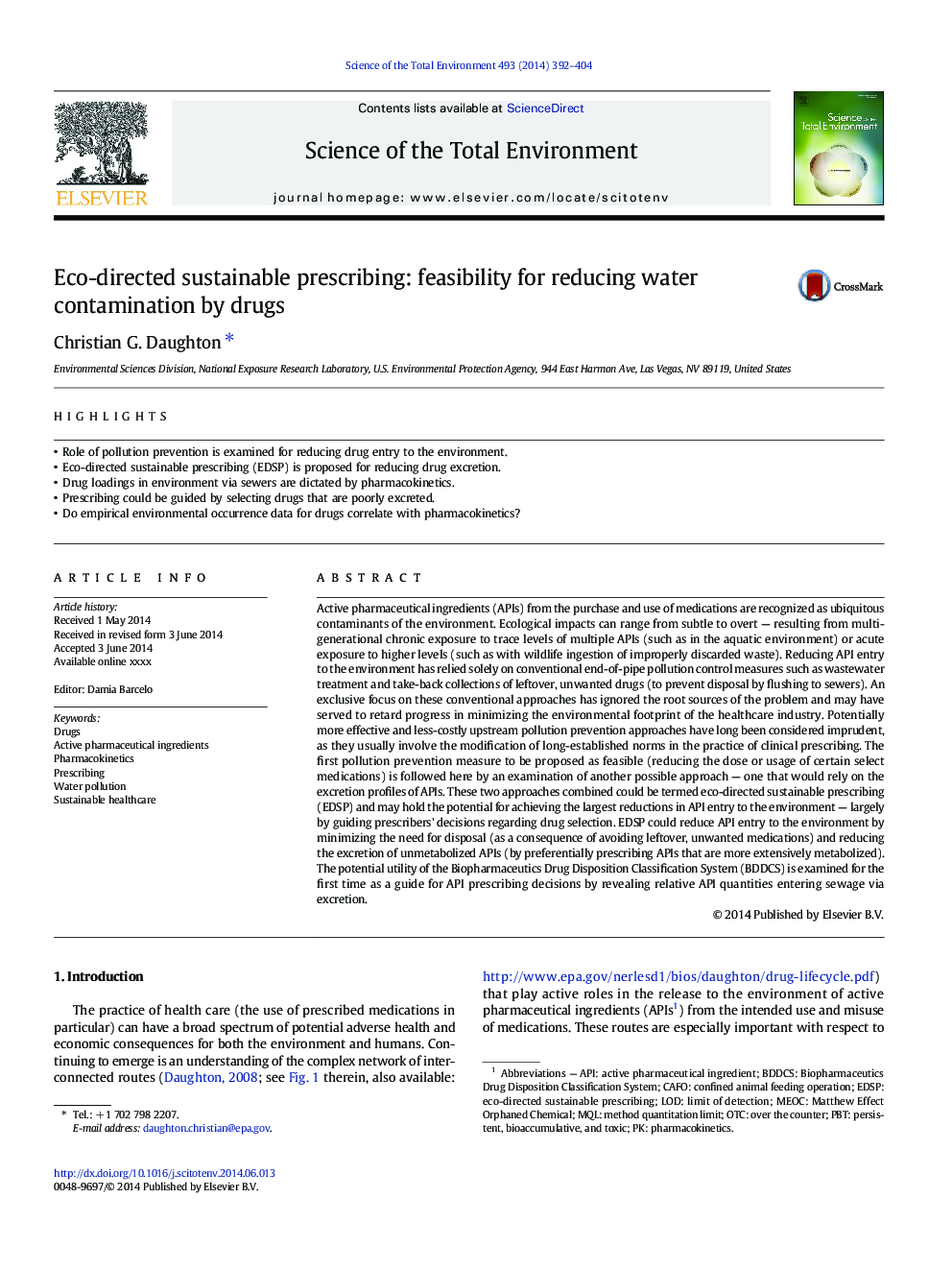| کد مقاله | کد نشریه | سال انتشار | مقاله انگلیسی | نسخه تمام متن |
|---|---|---|---|---|
| 6329687 | 1619778 | 2014 | 13 صفحه PDF | دانلود رایگان |
عنوان انگلیسی مقاله ISI
Eco-directed sustainable prescribing: feasibility for reducing water contamination by drugs
ترجمه فارسی عنوان
تجویز پایدار محیط زیست: امکان سنجی برای کاهش آلودگی آب توسط مواد مخدر
دانلود مقاله + سفارش ترجمه
دانلود مقاله ISI انگلیسی
رایگان برای ایرانیان
کلمات کلیدی
مواد مخدر، مواد دارویی فعال، فارماکوکینتیک، تجویز آلودگی آب، مراقبت های بهداشتی پایدار،
موضوعات مرتبط
علوم زیستی و بیوفناوری
علوم محیط زیست
شیمی زیست محیطی
چکیده انگلیسی
Active pharmaceutical ingredients (APIs) from the purchase and use of medications are recognized as ubiquitous contaminants of the environment. Ecological impacts can range from subtle to overt - resulting from multi-generational chronic exposure to trace levels of multiple APIs (such as in the aquatic environment) or acute exposure to higher levels (such as with wildlife ingestion of improperly discarded waste). Reducing API entry to the environment has relied solely on conventional end-of-pipe pollution control measures such as wastewater treatment and take-back collections of leftover, unwanted drugs (to prevent disposal by flushing to sewers). An exclusive focus on these conventional approaches has ignored the root sources of the problem and may have served to retard progress in minimizing the environmental footprint of the healthcare industry. Potentially more effective and less-costly upstream pollution prevention approaches have long been considered imprudent, as they usually involve the modification of long-established norms in the practice of clinical prescribing. The first pollution prevention measure to be proposed as feasible (reducing the dose or usage of certain select medications) is followed here by an examination of another possible approach - one that would rely on the excretion profiles of APIs. These two approaches combined could be termed eco-directed sustainable prescribing (EDSP) and may hold the potential for achieving the largest reductions in API entry to the environment - largely by guiding prescribers' decisions regarding drug selection. EDSP could reduce API entry to the environment by minimizing the need for disposal (as a consequence of avoiding leftover, unwanted medications) and reducing the excretion of unmetabolized APIs (by preferentially prescribing APIs that are more extensively metabolized). The potential utility of the Biopharmaceutics Drug Disposition Classification System (BDDCS) is examined for the first time as a guide for API prescribing decisions by revealing relative API quantities entering sewage via excretion.
ناشر
Database: Elsevier - ScienceDirect (ساینس دایرکت)
Journal: Science of The Total Environment - Volume 493, 15 September 2014, Pages 392-404
Journal: Science of The Total Environment - Volume 493, 15 September 2014, Pages 392-404
نویسندگان
Christian G. Daughton,
